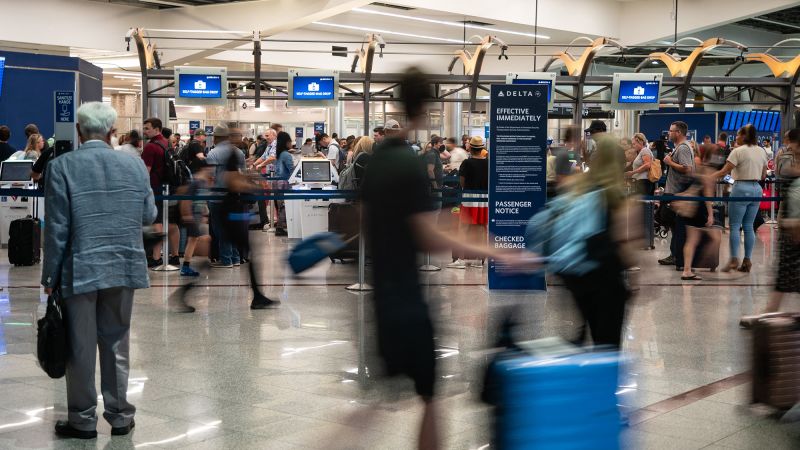ACI World Raises Concerns Over Proposed Air Travel Tax
– ACI World has expressed serious concerns regarding the decision by France, Kenya, Barbados, Spain, Somalia, Benin, Sierra Leone, and Antigua & Barbuda to launch a coalition ahead of COP30, focused on introducing a new tax on air transport—with a special focus on premium flyers—as a means to fund development, climate mitigation, and public health initiatives.
ACI World cautions that while well-intentioned, such a tax risks undermining the air transport sector’s critical role in driving economic development, global connectivity, and sustainability progress.
“We fully support the global pursuit of sustainable development and climate resilience,” said . “However, targeting aviation with additional taxes is likely to undermine the very connectivity and economic growth that support these goals. The aviation sector must be empowered—not penalized—if we want to achieve long-term global progress.”
Taxation on aviation has proven to hinder air connectivity and negatively impact regional economic growth. The economic benefits lost due to these taxes can be twice as large as the revenue governments collect from them. ACI research on the Taxation of International Air Transport and Airports estimates that the removal of the US$90 billion in taxes paid by aviation users would create 5.2 million jobs and US$180 billion in global GDP.
New taxes, such as the one proposed, also risk impacting regions that are particularly dependent on air connectivity for trade, tourism, and broader development.
Moreover, the eight States announced plans to invest “all or parts of the proceeds into resilient investments and fair transitions.” However, there is a significant risk that these funds will be diverted to other uses rather than serving their intended purpose.
The coalition of eight States announced it would work towards a “better contribution of the aviation sector to fair transitions and resilience.” However, the global aviation sector already is following an ambitious, coordinated plan to reach net zero carbon emissions by 2050, through the leadership of the International Civil Aviation Organization (ICAO), including the Carbon Offsetting and Reduction Scheme for International Aviation (CORSIA)—the international market-based system specifically designed to address aviation emissions.
A new international tax could divert critical funding away from CORSIA and other essential decarbonization priorities—including sustainable aviation fuels (SAF), operational improvements, infrastructure upgrades, and low-emission technologies.
ACI World joins ICAO, the International Air Transport Association (IATA), the Air Transport Action Group (ATAG), and others in cautioning against measures that extract value from aviation without reinvestment in its sustainable future. A globally fragmented approach—such as a tax imposed by a “coalition of the willing”—could distort competition, undermine environmental integrity, and disproportionately impact developing economies that rely on air transport for growth.
About ACI
Airports Council International (ACI), the trade association of the world’s airports, is a federated organization comprising ACI World, ACI Africa, ACI Asia-Pacific & Middle East, ACI EUROPE, ACI Latin America and the Caribbean and ACI North America. In representing the best interests of airports during key phases of policy development, ACI makes a significant contribution toward ensuring a global air transport system that is safe, secure, efficient, and environmentally sustainable. As of January 2025, ACI serves 830 members, operating 2,181 airports in 170 countries.
You may also like...
Diddy's Legal Troubles & Racketeering Trial

Music mogul Sean 'Diddy' Combs was acquitted of sex trafficking and racketeering charges but convicted on transportation...
Thomas Partey Faces Rape & Sexual Assault Charges

Former Arsenal midfielder Thomas Partey has been formally charged with multiple counts of rape and sexual assault by UK ...
Nigeria Universities Changes Admission Policies

JAMB has clarified its admission policies, rectifying a student's status, reiterating the necessity of its Central Admis...
Ghana's Economic Reforms & Gold Sector Initiatives

Ghana is undertaking a comprehensive economic overhaul with President John Dramani Mahama's 24-Hour Economy and Accelera...
WAFCON 2024 African Women's Football Tournament

The 2024 Women's Africa Cup of Nations opened with thrilling matches, seeing Nigeria's Super Falcons secure a dominant 3...
Emergence & Dynamics of Nigeria's ADC Coalition

A new opposition coalition, led by the African Democratic Congress (ADC), is emerging to challenge President Bola Ahmed ...
Demise of Olubadan of Ibadanland
Oba Owolabi Olakulehin, the 43rd Olubadan of Ibadanland, has died at 90, concluding a life of distinguished service in t...
Death of Nigerian Goalkeeping Legend Peter Rufai

Nigerian football mourns the death of legendary Super Eagles goalkeeper Peter Rufai, who passed away at 61. Known as 'Do...


